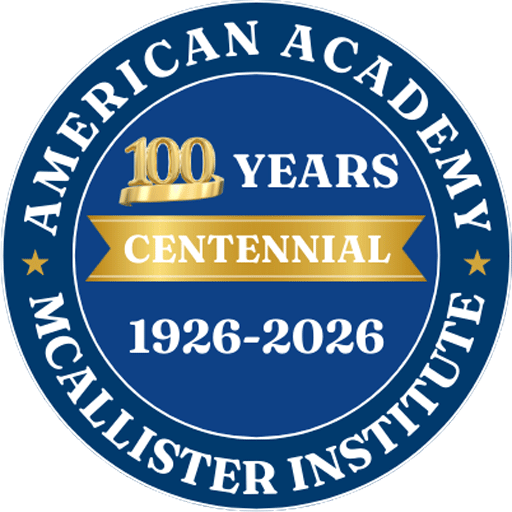
As you begin your first semester pursuing a mortuary science degree, you’ll be thinking of the exciting and meaningful work that awaits you. This work begins with your first round of classes, which will lay the educational and professional groundwork for your career within funeral services. It will likely include a mix of 100 and 200-level courses, which will serve as an introduction to the professional attitude, technical knowledge, and emotional context of a funeral service career.
From classes in funeral home directing and business management to microbiology and professional ethics, beginning a mortuary science degree is an exciting adventure. This article aims to help first-year mortuary science students find their footing by learning what to expect from their first semester.
Orientation and Program Overview
The first step on your path to a mortuary science degree is the orientation, which includes:
- Syllabus review
- Course introductions
- Scheduling
- Technology walkthrough
These four steps provide an overview of your first semester course progression and the program structure you can expect. As part of the introductions, you’ll meet your instructors and learn about the ethics and professionalism expected of students. The technology walkthrough is especially relevant for online and hybrid students, who will be introduced to their digital coursework flows as well as their in-person classroom schedule (if applicable).
Core Courses You’ll Likely Take
To get a better idea of the expected courses in your first semester, review these online course materials. The main classes that mortuary science degree students will need to complete in their first few semesters include:
- Anatomy & Physiology: An introductory course to human body systems, important for future work in embalming, restorative art, forensics, and more.
- Introduction to Funeral Service: This covers the history, vocabulary, career pathways, and legal basics of careers in funeral service.
- Embalming Theory I: This class details the principles of preservation and sanitation related to embalming. In the early semesters, this will be primarily lecture-based.
- Professional Ethics: This class covers the role of funeral service professionals in terms of their ethical responsibilities, which include compassion, transparency, punctuality, and more.
- Communication: Courses in communication may differ based on the institution, but they cover the basics of communicating with grieving families, church leaders, cemetery organizers, and more.
In addition to these courses, many mortuary science degree online and hybrid programs require an Intro to Blackboard (100-level) course to review the details of online work submissions. As students progress, they will gain access to high-level 300 courses, which go into more specific detail about the most interesting aspects of the funeral service profession, including Pathology for Embalmers, Advanced Anatomy courses, Mortuary Law, Clinical Embalming, and much more.
Lab Component (If Applicable in Semester One)

Not all students will have a lab component in their first semester, especially if they have general degree requirements to complete. If applicable, early hands-on experience will be largely observational, but it will provide a helpful preview of future clinical requirements.
For example, early labs may feature demonstrations of embalming techniques, the basics of restorative art, or previews of future clinicals, which will occur in later semesters under guided supervision. Online students may attend demonstrations and labs virtually in their introductory semesters, but in-person clinicals will be required in later semesters to complete the degree.
Academic Expectations
The academic expectations for students pursuing a mortuary science degree will be established in the first semester, including the time commitment required to balance coursework, studies, and part-time jobs. The importance of attendance, participation, and instructor communication will also be clarified to help students set their expectations. This is especially important for virtual students, who must manage their attendance without an in-person meeting place.
Students will also be introduced to the quizzes, exams, and writing assignments they will be expected to complete, including research projects, which can begin early depending on the class. The goal of setting these expectations in the first semester is to prepare students for long-term success before their classes become more difficult.
Emotional and Professional Adjustment
For many students, the first semester will involve an emotional adjustment in addition to their new schedules and preparatory coursework. Learning to talk about death, embalming, grief, and other sensitive subjects in a respectful, clinical way will require practice. Students are encouraged to practice professionalism early, enforced through punctuality, ethical behavior requirements, and practical empathy as they discuss concepts surrounding grief, death, and trauma.
Tips for Succeeding in Your First Semester
No two students’ experiences will be the same, but these tips can provide a blueprint for a successful first semester of your mortuary science degree:
- Follow a structured study schedule from the start.
- Engage with classmates to build a support network of fellow learners, even in online programs.
- Utilize academic support services, including communication with instructors, to clarify responsibilities and get additional help.
- Use a planner or digital calendar to stay organized.
- Think in terms of long-term goals, including licensure steps, future internships, and career focuses.
Support Resources and Student Services

In addition to these steps, other resources available to students include tutoring and academic advisors, mental health counselors, career development and resume workshops, and access to libraries, labs, and industry events. Students should use all their available resources to learn more about the funeral service industry and gain as much experience as they can while they’re still in school.
Partner with an Accredited Institution to Successfully Start a Mortuary Science Degree
While the first semester of school can seem difficult, an accredited institution in mortuary science eases students into their new schedules with academic resources, clear degree paths, and multiple in-person and online class options to suit any schedule. At AAMI, our goal is to encourage future funeral services professionals to recognize both the technical and emotional sides of this important field while they’re still at school.
As students learn and grow from their first semester onward, our teams try to equip them with everything they will need to turn their mortuary science degrees into rewarding careers. Contact our team today to schedule a meeting and learn how to start your first semester in funeral services the right way.
